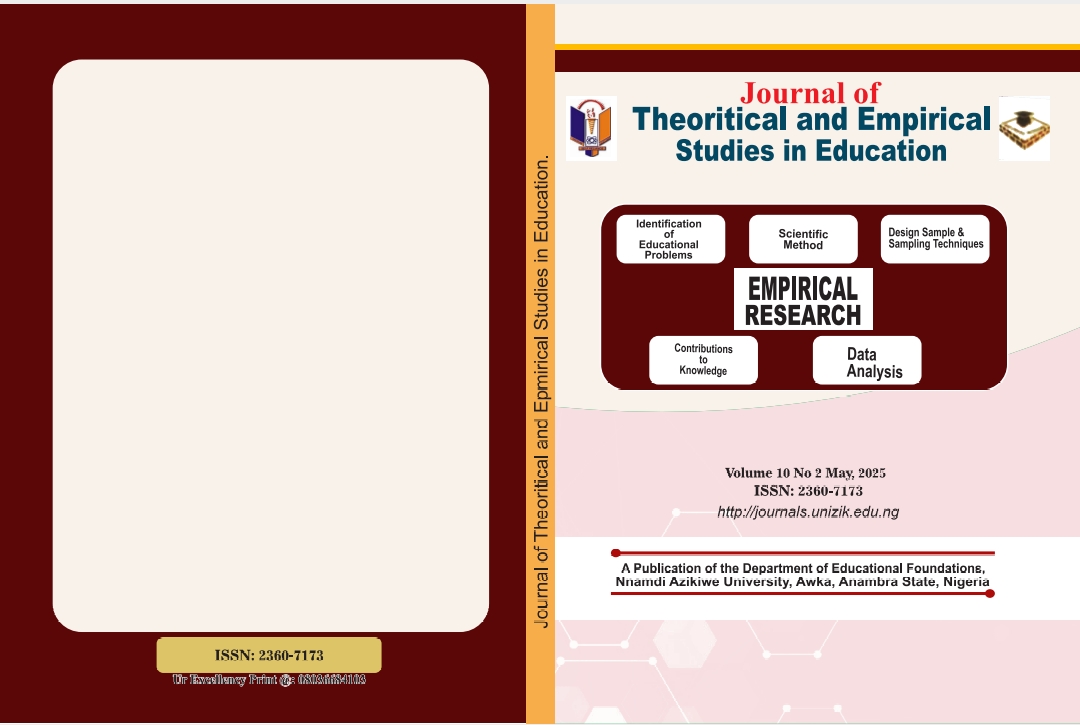UTILISATION OF TWO PSYCHOLOGICAL TRAINING IN FOSTERING ORGANISATIONAL SUCCESS AMONG SMALL SCALE BUSINESS OWNERS IN IBADAN, NIGERIA
Keywords:
Small-scale business owners, Locus of control, Goal-setting and Relational intelligence training.Abstract
Organisational Success (OS) is vital to the development of businesses, considered
indispensable for aspiring business owners and pivotal in fostering the growth of
the nation’s economy. However, literature has shown that many small-scale
business owners in Ibadan have poor organisational performance. Previous
studies on small-scale businesses concentrated more on areas like financial
management, and operational efficiency than on intervention using psychological
training. This study, therefore, was designed to determine the effects of Goal-
setting Training (GST) and Relational Intelligence Training (RIT) in fostering OS
among small-scale business owners in Ibadan, Nigeria. The moderating effects of
Locus of Control (LoC) was examined. The Vroom’s Performance-based
Expectancy theories provided the framework, while the study adopted the pretest
post-test, control group, quasi-experimental design with a 3×2 factorial matrix.
Three Local Government Areas (LGAs) (Akinyele, Ibadan North and Ibadan
Northwest) were purposively selected based on the ample number of small-scale
businesses. The cluster sampling technique was used in selecting relevant trade
associations, while small business owners whose businesses were not performing
optimally (adjudged by OS screening scale) were purposively sampled in the
selected LGAs. The participants were randomly assigned to GST (22), RIT (21),
and Control (20) groups. The instruments used were OS (α=.96) and Locus of
Control (α=.83). The training lasted nine weeks. Analysis of covariance and Bonferroni Post-hoc served as analytical tools at 0.05 level of significance. There
was significant main effects of training on OS (F(2; 45)=27.19; partial η2=0.55).
Participants in RIT had the highest adjusted mean score (157.27), followed by
those in the GST (141.45) and control (103.84) groups. There was a significant
two-way interaction effect of training and LoC on OS (F(2; 45)=5.08; partial
η2=0.18), in favour of participants with internal LoC in RIT group. Both training
fostered organisational success of small-scale business owners in Ibadan, Nigeria.
Personnel psychologists, human resource managers and entrepreneurs should
utilise these interventions with consideration for locus of control.




